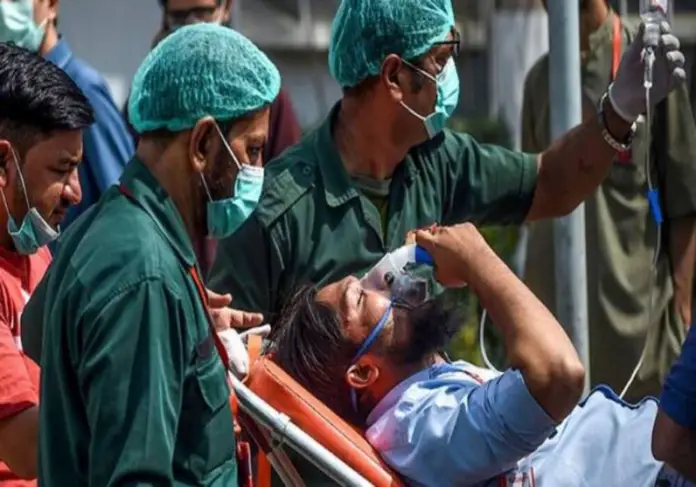Pakistan’s Covid-19 positivity ratio was recorded at 2.89 per cent, while the number of cases continued to be over 1,000 for the third consecutive day — which is more than double of the new infections recorded a week ago
During the last 24 hours, as many as 46,537 tests were conducted out of which 1,345 came out positive. The nationwide coronavirus tally has now increased to 1,302,486. Sindh reported 797 cases, Punjab (406), KPK (59) while Balochistan reported two new cases during the last 24 hours. Similarly, Islamabad reported 74 infections, AJK (7) while Gilgit-Baltistan did not report any new infections.
Moreover, the active number of coronavirus cases now stands at 15,192, while the critical number of cases stands at 629.
Meanwhile, the virus claimed one more life, taking the fatalities to 28,962. At least 246 people recovered during the last 24 hours, taking the total number to 1,258,332.
The Sindh government has recently made coronavirus vaccination mandatory for students aged 12 and above to contain the spread of the Omicron variant.
The provincial government has also made it obligatory for all teaching and non-teaching staff to get vaccinated, according to a notification issued by the Sindh Education Department. It has directed the administration of all privately managed educational institutions to ensure 100% vaccination of students and staff of their schools.
The Sindh government has also decided on door-to-door vaccination of the citizens. This would be done with the help of lady health workers.
The decision by the provincial government comes amid the Omicron variant spreading rapidly in the country. On Friday, the total number of Omicron cases in Karachi increased to 307, while the positivity ratio was recorded at 10.25%
Meanwhile, Sindh Chief Minister Syed Murad Ali Shah on Saturday said that 21 more cases of Omicron variant among 958 of COVID-19 were detected in the province.
The CM said 24 samples of Omicron were tested during the last two days (Jan 6-7), of them, 21 were detected as Omicron positive lifting the tally to 328, which constituted 87.5 per cent current detection rate.
According to Murad, out of 21 new cases, 14 have been detected from District East, three Central, one Malir and three residents of other provinces.
He said that most of the new cases were locally transmitted.
The CM said that the 87.5 per cent detection rate was high and showed a fast-spreading trend, therefore, people have to be careful.
Murad said that 14,868 samples were tested which detected 938 cases that constituted a 6.3 per cent current detection rate. He said that so far, 7,242,318 tests have been conducted against which 485,422 cases were diagnosed as positive, of them 96.5 per cent or 468,665 patients have recovered, including 107 overnight.
The CM said that currently, 9,076 patients were under treatment, and of them, 8,817 were in home isolation, 110 at isolation centres and 149 at different hospitals.
He said that the condition of 142 patients was stated to be critical, including 11 who were shifted to ventilators.
Sharing vaccination data, the CM said that 30,291,406 vaccinations have been administered up to January 6, adding that during the last 24 hours 179,475 vaccines were inoculated — in total 30,470,881 vaccines have been administered, which constituted 55.20 per cent of the vaccine eligible population. Earlier, a US Centers for Disease Control and Prevention report said that two doses of the Pfizer and BioNTech COVID-19 vaccine are highly protective against a rare but often serious condition in children that causes organ inflammation weeks after COVID-19 infections.
The vaccine was estimated to be 91 per cent effective in preventing Multisystem Inflammatory Syndrome in Children (MIS-C) in 12-18-year-olds, the study said.
MIS-C causes inflammation in children in organs including the heart, lungs, kidneys and brain two to six weeks after a mild or asymptomatic infection.







